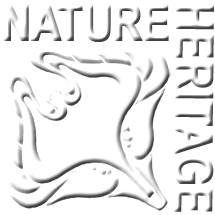Working with and for communities
The average human behaviour strives for economic growth, fuels by the use of natural resources and ecosystem services. There is no doubt that the capitalist economic system, now dominant all over the world, is unsustainable. We have already breached several ecological boundaries in relation to climate change, biodiversity loss and nutrient enrichment. This system not only endangered humanity long-term, but it leads to increased inequality of marginalised people and communities, such as many indigenous communities. If we want to to change this trajectory into an unsustainable and ever increasing inequity, we must start to change human behaviour alongside conservation actions. Nature Heritage contributes to change human behaviour by,
- first, helping to document sustainable practices of indigenous people (e.g. assessment of the use of non-timber forest products in Cameroon),
- second, helping marginalised communities to improve their health (e.g., Baka Pygmy People in Cameroon) and
- third, conducting education campaigns promoting conservation and behavioural change (e.g., campaigns in the Dominican Republic)
Producing educative infomercials - a participatory approach
As part of the environmental education campaign, we produced a series of short videos about the hutia and the solenodon, the last mammal survivors of their evolutionary lineages on the Island of Hispaniola, now Dominican Republic and Haiti.
Read MoreHeritage and sustainable development: Black butter in Jersey
Traditional orchards used to be widespread throughout Europe but have mostly disappeared. In the Channel Islands, the National Trust for Jersey has successfully revived the old tradition of Black Butter making. This engages people and is an opportunity to save and expand remaining orchards by facilitating public support. We have documented Black Butter making.
The importance of cultural knowledge for the interest toward the environment on the internet
Recent analyses of Internet search behaviour conclude that the public’s interest in environmental issues is falling. These analyses were focused on the English-speaking world. We challenge them by evaluating Internet searches of English and non-English speaking users.
Documenting the use of non-timber forest products in Cameroon
We conducted two ethnobotanical surveys in 2019 in four villages of Baka People in dense rainforests in south-eastern Cameroon to document the use of non-timber forest products (NTFPs) in general and wild edible plants (WEP) in particular.
Read MoreNutrition, growth and body mass index of Baka Pygmy children and adults
Baka Pygmy People suffer from poorer health than sympatric peoples because of greater poverty and insufficient health care. Read More
We use anthropometric and health data to estimate stunting, wasting, and obesity frequencies for a large sample of Baka Pygmy children living in southeastern Cameroon. We monitored the body mass index (BMI) of adult Baka and compared it with their Bantu neighbours.

